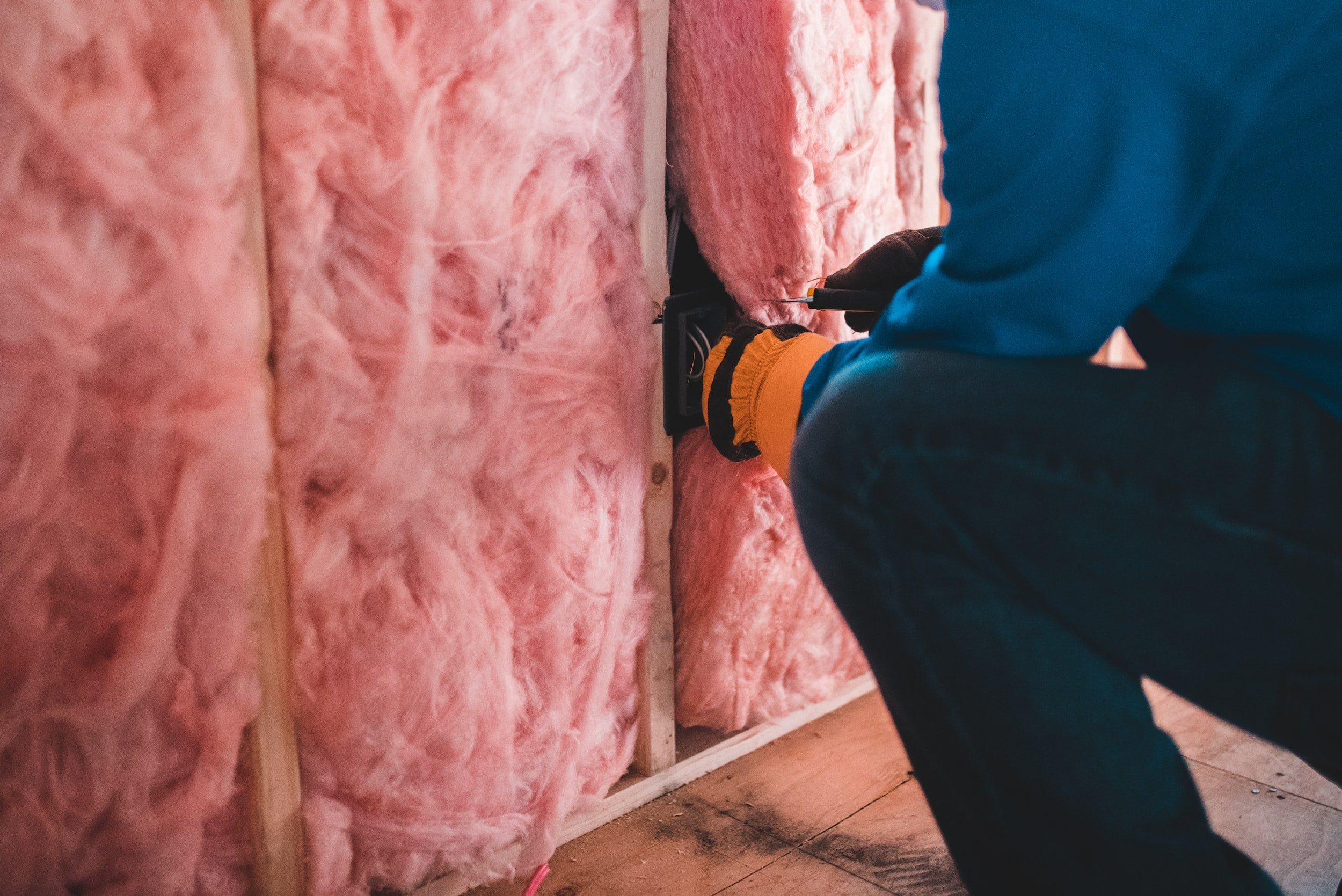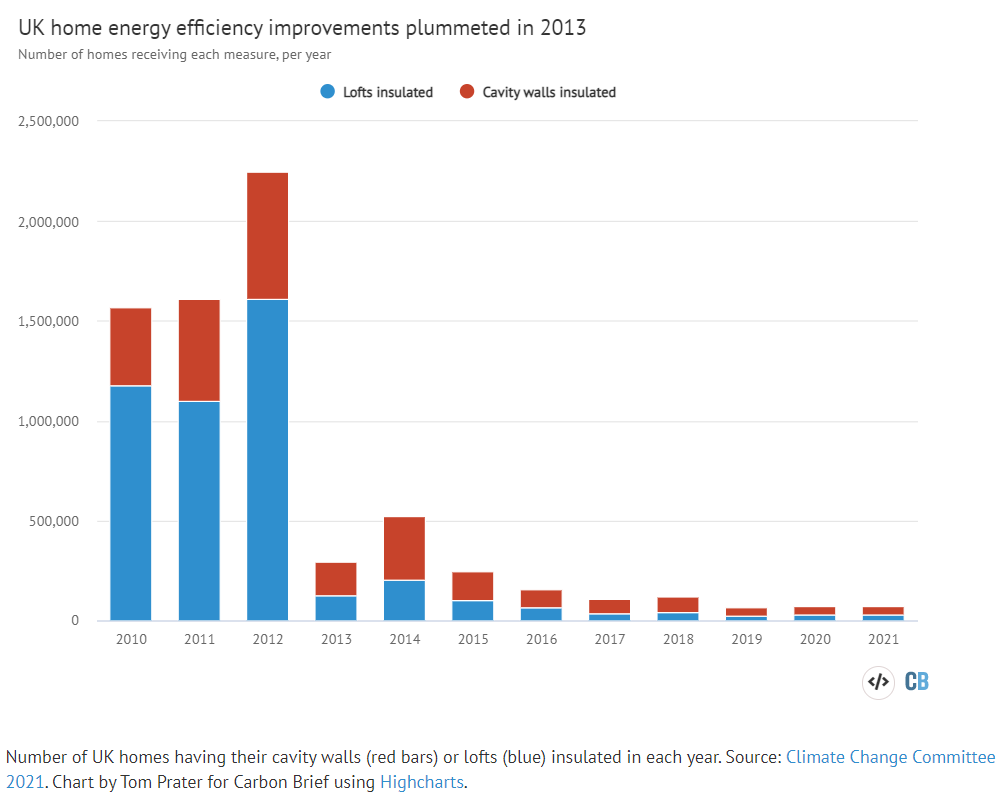Energy Efficiency - The UK’s Missing Puzzle Piece
In the 280 days since Russia invaded Ukraine, Energy has emerged as one of the most prominent political issues in the UK and across the world. We entered 2022 with natural gas prices already rising, and Putin’s invasion and subsequent weaponization of energy flows to Europe, as well as the resulting response from the rest of the world, has provided another massive shock to energy markets.
It is therefore surprising that it has taken this long for the UK government to be comfortable talking about the quickest and most obvious way for us to reduce the burden on our energy supplies, namely energy efficiency.
Granted, the UK is on its third Prime Minister since February 2022, but its still astonishing that it has taken this long for the government to start its public energy efficiency information campaign, which it announced this week along with a new home insulation grant scheme called ECO+ which will launch in April 2023.
The cheapest form of energy is the energy you do not use.
With Russia cutting supplies of natural gas, and European countries not wanting to buy fuels from Russia that would help fund their war in Ukraine, a number of countries took steps this summer to urge or even mandate reduced energy use - as these news items show:
The EU
In July, the EU agreed on a target to reduce natural gas demand by 15% compared to average consumption in the past five years. The cuts were voluntary at the time, but could become mandatory if things get worse.
France
Embarked on a “sobriety programme” aimed at cutting energy consumption by 10%, including setting temperatures in public buildings higher in summer and lower in winter. The private sector and households are expected to make similar efforts.
“Shops risk fines if they do not keep their doors shut while using air conditioning. Illuminated business signs must be turned off once the business is closed and lit-up advertising is to be turned off during the early hours of the morning.”
Italy
“Put a 25C limit on air conditioning.”
Greece
“Launched “operation thermostat” requiring that air conditioning is set at a minimum of 27C in the summer. In addition, computers must be switched off after office hours and huge investments, around €640 million, are set to be made to install more efficient windows, heating, and cooling systems in state-owned buildings.”
Germany
“Germany has activated the second level of its three-stage emergency gas plan. The third stage could see energy supplies to industry limited.”
“Hanover was the first major city to introduce energy savings. The hot water in leisure centre showers has been switched off, and government buildings can be heated to a maximum of 20°C. Berlin has turned off fountains and stopped lighting up its monuments and public buildings”
These efforts have yielded some success, with Germany cutting its gas consumption by 28% in August and 7.4% in September, Italy by 22% in September and the Netherlands gas use by nearly a third. Along with reductions in the industrial use of gas due to the high prices, this has allowed the EU to fill its gas storage before winter, a crucial effort given Putin’s aim of freezing out Europe because of their support for Ukraine.
While it is true that in the UK we have not been so heavily reliant on Russian gas, the increasing energy prices and the crunch of supply should have been a wakeup call that a dramatic increase in energy efficiency across all sectors was required.
Instead, the government focused on making sure coal plants can be used as a backup this winter , and on opening up a new round of licensing for North Sea oil & gas exploration (despite that having no hope of this replenishing supplies in the next few years let alone months – and the IEA saying that new oil and gas projects are incompatible with a pathway to 1.5degC by 2050).
A big push for energy efficiency has been sorely lacking.
Which is why it is encouraging that on the 28th November Business and Energy Secretary Grant Shapps announced a new scheme to help homeowners install insulation from April 2023 onwards along with a public information campaign to offer tips for people to cut their energy use this winter.
The home insulation scheme, ECO+, will reportedly provide up to £1,500 to install insulation that could lower bills by £300 a year. This help is sorely needed, as the UK has some of the worst insulated housing stock in Europe.
How to reduce your energy use at home:
Turn down your boiler flow temperature - a simple but very effective way to reduce your bills!
Turn down the thermostat to a cooler temperature (that is still comfortable & safe)
Install newer LED lightbulbs
Unplug unused electronics
Insulate!
Wall insulation being installed. Insulation isn’t the nicest material but getting it properly installed into your walls and loft can really reduce your energy use - and therefore both your bills and carbon footprint.
The reality is the UK should be in a much better position than it finds itself. And the blame does not solely lie with the current government.
Back in 2013 Prime Minister David Cameron’s solution to rising energy bills was to “get rid of the green crap”. Carbon Brief have found that had climate policies not been scrapped over the past decade energy bills in the UK would be £2.5bn less than they are now. The number of lofts and cavity walls insulated across the UK fell off a cliff in 2013.
Graph from Carbon Brief
The picture for energy efficiency worldwide is similarly mixed but shows some encouraging trends.
In the IEA Energy Efficiency Report published this week, they found that:
“Energy efficiency actions have accelerated globally in 2022 as governments and consumers have increasingly turned to efficiency measures as part of their responses to fuel supply disruptions and record-high energy prices, indicating a potential turning point after several years of slow progress.
Global investments in energy efficiency – such as building renovations, public transport and electric car infrastructure – reached USD 560 billion in 2022, an increase of 16% on 2021, according to the IEA’s latest market report, Energy Efficiency 2022.
Preliminary data indicate that in 2022 the global economy used energy 2% more efficiently than it did in 2021, a rate of improvement almost four times that of the past two years, and almost double the rate of the past five years. If the current rate of progress can be built upon further in the coming years, then 2022 could mark a vital turning point for efficiency, which is one of the key areas for international efforts to reach net zero emissions by 2050.”



